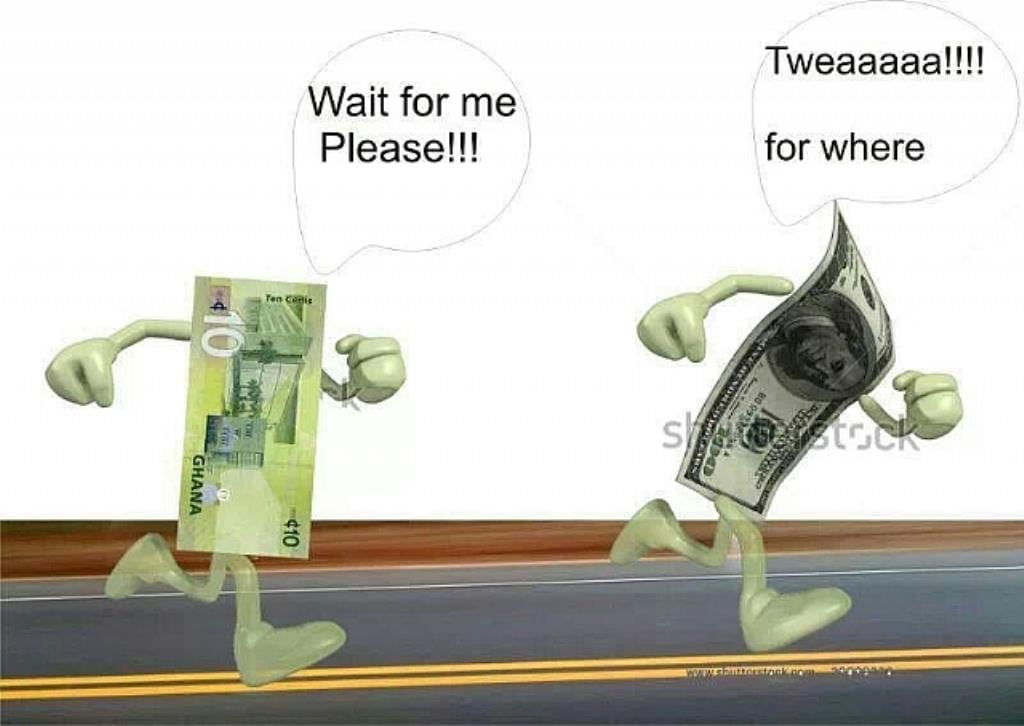
Following the recent arguments over the issue of devaluing the Ghana Cedi, Prince Kofi Amoabeng, the Group Chairman of UT group of Companies, in a recent statement gives 3 reasons why Ghana’s currency should not be devalued. He was of the opinion that it was quite unnecessary to devalue it as it is always in a floating state. Amoabeng as it appears shares the same opinion with the BoG Governor, who equally said there was no need to devalue the currency. Just like BoG Governor, he said that Cedi’s devaluation was dependent on market forces, stating the three reasons why he thinks it should not be devalued.
First, as was mentioned earlier, he said that the currency is floating, as there are factors of demand and supply. In other words, the devaluation is also dependent on these factors.
“The currency is floated; we have a floating foreign exchange currency regime. So depending on supply and demand, we will move in one way or the other which means it subjected itself to devaluation,” he said on the first reason.
Secondly, the Ghana Cedi has already indirectly been devalued over the years. He pointed out that there has been a 75 percentage of decrease in the Cedi value, as a Cedi was equivalent to a dollar, but currently 1 Ghana Cedi is equivalent to 4 dollars, hence the devaluing is unnecessary.
Thirdly, with Ghana being a country which does more of import than export, he said that the currency should not be devalued as that would increase the rate at which the country imports goods from foreign countries. ‘
“Then the third reason is we are an import-based economy. So we don’t export much; everything comes from the import. If we devalue its means imports are going to get more expensive. This is because the fact that you devalue does not mean you will increase your export because it is not elastic enough to respond to the rate of devaluation. And that will make things more expensive as prices go high, therefore why the need to devalue.” he said.
The issue of devaluing of the Ghana Cedi became a matter of importance when Vice President Kwesi Amissah Arthur suggested its implementation to West African Countries.
Mr. Prince Kofi Amoabeng who is also the co-founder of the UT Group of companies announced his retirement in November 2015. He equally trashed the predictions of some financial analysts that Cedi would rise to 6 dollars by the end of 2015.
Ghanaian Cedi (GH¢) Rates
The depreciation of the cedi fluctuates and it affects trades of goods and services around the nation. It was reported on May 2018, that the Cedi depreciated by 1.33% against the US dollar, hence the surge in the fuel price.
Economists at the research desk of Standard Bank reported that they expect the currency to depreciate by a moderate 6% year-on-year to close the year at around 4.75 due to an expectation of a rebound in import demand as private sector credit growth recovers.
Despite being one of the stronger African currencies, the Ghanaian cedi has been losing value continuously against the US dollar since 2008. Since it’s devaluation in 2016 to 4.5 cedis per dollar, the cedi regained some ground over the US dollar and has remained stable.
While the country enjoys currency stability on lower inflation in 2018, another statistic showed that the cedi may suffer some depreciation by end of the year. Also, the currency is projected to hit 6 cedis to a dollar by 2022, according to a prediction of the Economist Intelligence Unit, a specialist publisher in the UK.
The prediction was based on two of the following:
- the tighter monetary policy in the US from the latter part of 2018; and
- the renewal of political uncertainties associated with Ghana’s 2020 elections.
However, the Unit is hoping that the country’s inflation would reduce in relation to the Bank of Ghana’s target of ±8% this year.
See Also: Are Online Casinos and Sportsbooks Legal in Ghana?
Major Reasons Why Countries Devalue their currency
1. To Boost Exports
Investopedia explains that on a world market, goods from one country must compete with those from all other countries.
2. To Shrink Trade Deficit
As exports increase and imports decrease due to exports becoming cheaper and imports more expensive, trade deficit could persist which is very common in every country. Economic theory states that ongoing deficits are unsustainable in the long run and can lead to dangerous levels of debt which can cripple an economy. Hence a country would have to devalue their home currency to help correct balance of payments and reduce these deficits.
3. To Reduce Sovereign Debt Burden
Economists explain that currency devaluations can be used by countries to achieve economic policy. While having a weaker currency than the other countries can help boost exports, shrink trade deficits and reduce the cost of interest payments on its outstanding govt. debt, it comes with a negative side that causes a country more harm than good.
Countries might be tempted to join the tit for tat currency war; devaluing their own currency back and forth in a race to the bottom, but it only creates uncertainty in global markets that can cause asset markets to fall or spur recessions.








